Papers by Marisca Milikowski

What is the role of media in the lives of diasporas living in Europe today and do they help such ... more What is the role of media in the lives of diasporas living in Europe today and do they help such people to come to terms with their 'otherness' in a foreign land? These were the questions posed by recent research among into Turkish communities, especially women, in Amsterdam. The answers, as the following article shows, vary according to age and circumstance, although television is a key factor. In the fall of 1922 Kemal Ataturk was celebrating victory over the foreign invaders and looking forward to the establishment of the Turkish Republic with great anticipation. Following a victory dinner where he appointed Ismet Inonu to be the delegate to negotiate for Turkey at the Conference of Lausanne, he went to an Ankara cinema to speak to the people. Though the Republic had not yet been officially established or recognized, Ataturk was already planning his enormous social reform. According to Lord Kinross' account of the speech he gave that evening at the victory rally, the audience was dominated by women-and it was to them he spoke. 'Win for us the battle of education and you will do yet more for your country than we have been able to do. It is to you that I appeal.' To the men, he said: 'If henceforward the women do not share in the social life of the nation, we shall never attain our full development. We shall remain irremediably backward, incapable of treating on equal terms with the civilizations of the West.' To the whole crowd, he said: And all that will still be nothing if you refuse to enter resolutely into modern life, if you reject the obligations which it imposes. You will be the lepers, pariahs, alone in your obstinacy, with your customs of another age. Remain yourselves, but learn how to take from the West what is indispensable to an evolved people. Admit science and new ideas into your lives. If you do not, they will devour you (Kinross, 1964, p. 390).
... Wat komt er in dat opzicht binnen via de Turkse satelliet? Misschien is het goed om even voor... more ... Wat komt er in dat opzicht binnen via de Turkse satelliet? Misschien is het goed om even voorop te stellen dat ik de Grijze Wolven niet wil bagatelliseren - die zijn ook in mijn ogen griezelig. En ik ben evenmin liefhebber van religieus fundamentalisme. ...

This paper is about the manifold and changing cultural identities of Turkish migrants and their o... more This paper is about the manifold and changing cultural identities of Turkish migrants and their offspring in the Netherlands, viewed from a perspective of citizenship, in an age of satellite television. It is a complex subject, on a theoretical as well as on an empirical level. The aim of this paper is to develop an approach which can take these different complexities into account, and enable us to decide what the really interesting questions are. We will proceed as follows. First, we'll provide some background on the immigration history of the Turkish Dutch, and on the changing ethnic and social make-up of Dutch society, in particular of its capital, the city of Amsterdam. We'll also provide some data on Turkish television viewing. Next, we'll look at the different meanings of identity. How do people set about placing and identifying themselves in relation to others? What is universal, what is specific? How can outside forces-e.g., social policies and popular thinking-affect identities as experienced from within? The last part is an endeavour to understand how satellite TV might affect different people's understanding of themselves in relation to society. Migration history: from migrants to minory The majority of the Turkish people living in the Netherlands are either exguestworkers, or closely related to a guestworker. This means that permanent settlement in the Netherlands was far from the minds of the first generation of Turkish arrivals, back in the sixties and seventies. It also means that-on the average-the older people, the guestworkers and their wives, are less well schooled than the native Dutch of comparable age. Being unschooled was in fact precisely what made them suitable in the eyes of Dutch employers. The native Dutch labour force was rapidly becoming what is officially called 'overschooled', which meant that too few people could be recruited from within the country to keep the traditional industry-the textile mills and shipping wharves-in business. Employers, in that context, prized lack of formal educational. Potential workers in Turkey and Morocco who had more schooling than was strictly needed for the job might even fail the test for just that reason. Guestworkers were expected to work, to sleep in barracks or bachelors quarters, and to return after a few years to the country they came from. But history took a different turn. Now, in 1998, the population of the Netherlands includes around 300.000 people who are statistically counted as belonging to the Turkish minority, which means that either they or at least one of their parents were born in that
1. De cursus. De Kaap zetelt in een oud schoolgebouw in de Amsterdamse Transvaalbuurt. Het is een... more 1. De cursus. De Kaap zetelt in een oud schoolgebouw in de Amsterdamse Transvaalbuurt. Het is een rustige school, waar op elke verdieping plakkaten hangen met gedragsregels: ik stamp niet op de trappen, ik ren niet door de gangen. Zo is het maar net. Eerder was ik op een school waar naar hartelust gestampt, gerend en gesprongen werd en voor
Behaviour Research and Therapy, 1995
Het probleem dat ik hier wil bespreken heet concept . De afgelopen jaren hebben wij onderzoek ged... more Het probleem dat ik hier wil bespreken heet concept . De afgelopen jaren hebben wij onderzoek gedaan naar de inhoud en de vorm van getalsconcepten. Deze zomer haalde ik een artikel, waarin concept en con ceptual nogal vaak voorkwamen, door de MS Word grammar check. Al bij de eerste regels ging het mis. Het programma accepteerde mijn concepten niet. Bij


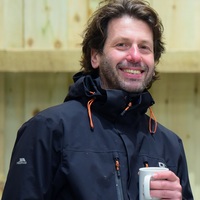
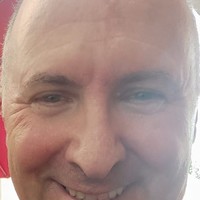

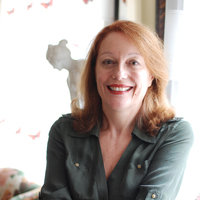
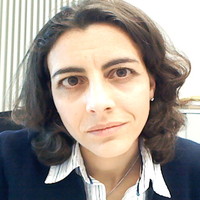

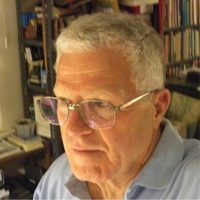


Uploads
Papers by Marisca Milikowski